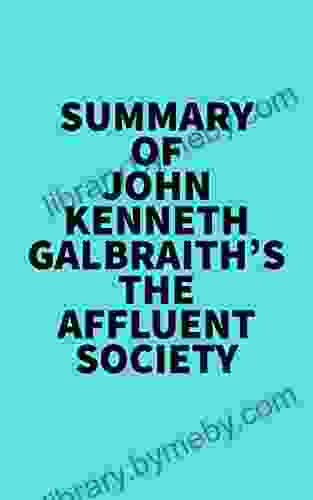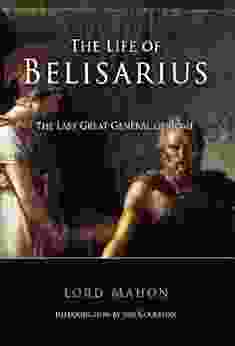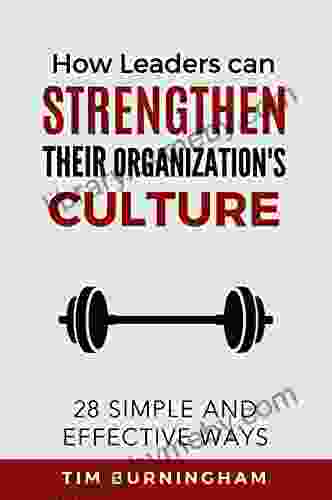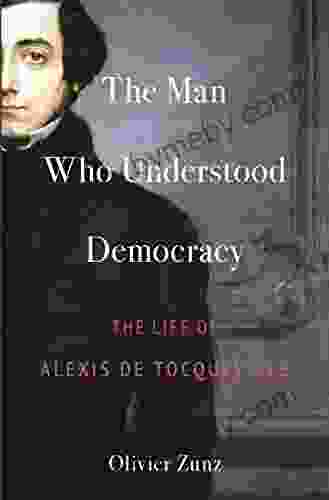Delve into the Profound Insights of John Kenneth Galbraith's "The Affluent Society"

In his seminal work, "The Affluent Society," John Kenneth Galbraith, a renowned economist, unveils a thought-provoking exploration of the complexities and paradoxes inherent in modern affluent societies. Through incisive analysis and compelling prose, Galbraith challenges prevailing economic dogma, offering a profound critique of the distribution of wealth and its impact on society. This article delves into the essence of Galbraith's seminal text, providing a comprehensive summary of its key concepts, arguments, and enduring implications.
1. The Concept of Affluence
Galbraith defines affluence as a state of economic prosperity characterized by an abundance of goods and services. He argues that advanced economies have achieved a level of material wealth where basic needs are met and consumption patterns shift towards non-essential and luxury goods. This abundance, while fostering economic growth, paradoxically creates new challenges and imbalances.
4.6 out of 5
| Language | : | English |
| File size | : | 1434 KB |
| Text-to-Speech | : | Enabled |
| Screen Reader | : | Supported |
| Enhanced typesetting | : | Enabled |
| Word Wise | : | Enabled |
| Print length | : | 68 pages |
2. The Privatisation of Affluence:
Galbraith contends that affluence is not evenly distributed throughout society. Instead, it is concentrated in the hands of a relatively small elite, leading to a widening gap between the wealthy and the poor. This private accumulation of wealth, he argues, arises not only from differences in productivity but also from the exploitation of market power and inherited advantages.
3. The Role of Advertising:
Galbraith highlights the pervasive role of advertising in shaping consumer desires and behaviour. He argues that advertising creates artificial needs and stimulates excessive consumption, driving a cycle of relentless production and environmental degradation. This manipulation of consumer preferences, he believes, undermines the rational allocation of resources.
4. The Public Neglect:
While private affluence flourishes, Galbraith observes a relative neglect of public goods and services essential to society's well-being. These include education, healthcare, infrastructure, and social welfare programmes. He argues that this underinvestment stems from a societal focus on private consumption and a lack of political will to redistribute wealth.
5. The Dependence Effect:
Galbraith introduces the concept of the "dependence effect," suggesting that as affluence increases, society becomes more reliant on technology and specialized knowledge. This specialization, while driving productivity, can also lead to a decline in individual self-sufficiency and a sense of vulnerability.
6. The Inevitability of Government Intervention:
Galbraith argues that the challenges posed by affluence cannot be adequately addressed solely by market forces. He advocates for an active role of government in regulating the economy, redistributing wealth, and investing in public goods. He believes that such intervention is necessary to ensure a more equitable and sustainable distribution of society's resources.
7. Beyond Economic Growth:
Galbraith challenges the traditional focus on economic growth as the primary goal of society. He argues that affluence provides a unique opportunity to redirect our attention towards social and environmental priorities, such as reducing inequality, improving healthcare, and protecting the natural world.
John Kenneth Galbraith's "The Affluent Society" remains a seminal work that profoundly shaped economic thought and policy. His insightful analysis of the paradoxes and challenges of affluence is as relevant today as it was at the time of its publication. Galbraith's call for a more equitable distribution of wealth, a focus on public goods, and a re-examination of our societal values continues to resonate, inspiring us to rethink the true measures of economic progress and well-being. By understanding Galbraith's profound insights, we can engage in more informed discussions and work towards creating a more just and sustainable society for all.
Call to Action
Immerse yourself in the groundbreaking ideas of John Kenneth Galbraith by reading his thought-provoking classic, "The Affluent Society." This masterpiece will challenge your assumptions, inspire critical thinking, and equip you with a deeper understanding of the complexities of modern economics. Embrace the opportunity to delve into Galbraith's insights and contribute to the ongoing dialogue about the future of our affluent society.
4.6 out of 5
| Language | : | English |
| File size | : | 1434 KB |
| Text-to-Speech | : | Enabled |
| Screen Reader | : | Supported |
| Enhanced typesetting | : | Enabled |
| Word Wise | : | Enabled |
| Print length | : | 68 pages |
Do you want to contribute by writing guest posts on this blog?
Please contact us and send us a resume of previous articles that you have written.
 Book
Book Novel
Novel Page
Page Chapter
Chapter Text
Text Story
Story Genre
Genre Reader
Reader Library
Library Paperback
Paperback E-book
E-book Magazine
Magazine Newspaper
Newspaper Paragraph
Paragraph Sentence
Sentence Bookmark
Bookmark Shelf
Shelf Glossary
Glossary Bibliography
Bibliography Foreword
Foreword Preface
Preface Synopsis
Synopsis Annotation
Annotation Footnote
Footnote Manuscript
Manuscript Scroll
Scroll Codex
Codex Tome
Tome Bestseller
Bestseller Classics
Classics Library card
Library card Narrative
Narrative Biography
Biography Autobiography
Autobiography Memoir
Memoir Reference
Reference Encyclopedia
Encyclopedia Marcia Bartusiak
Marcia Bartusiak Richard L Hughes
Richard L Hughes Philip Simmons
Philip Simmons Michael Medved
Michael Medved Nick Adams
Nick Adams Massoumeh Ebtekar
Massoumeh Ebtekar William Oldfield
William Oldfield Lauren Bacall
Lauren Bacall Luke A Nichter
Luke A Nichter W T Hamilton
W T Hamilton William Gilbert
William Gilbert Walaa Maher
Walaa Maher Sam Demas
Sam Demas Pamela J Grace
Pamela J Grace Kyo Maclear
Kyo Maclear Martin Fitzpatrick
Martin Fitzpatrick Stephen Rule
Stephen Rule Paul Nardozzi
Paul Nardozzi Remo Guerrini
Remo Guerrini Trevor Norton
Trevor Norton
Light bulbAdvertise smarter! Our strategic ad space ensures maximum exposure. Reserve your spot today!
 Vic ParkerFollow ·15.8k
Vic ParkerFollow ·15.8k Harry HayesFollow ·19.9k
Harry HayesFollow ·19.9k Joseph ConradFollow ·5.3k
Joseph ConradFollow ·5.3k Hudson HayesFollow ·17.3k
Hudson HayesFollow ·17.3k Ralph Waldo EmersonFollow ·19.9k
Ralph Waldo EmersonFollow ·19.9k Forrest ReedFollow ·11.7k
Forrest ReedFollow ·11.7k Martin CoxFollow ·2.7k
Martin CoxFollow ·2.7k Harrison BlairFollow ·5.3k
Harrison BlairFollow ·5.3k

 Clay Powell
Clay PowellDiscover the Enigmatic Beauty and Profound Meaning in...
An Exploration of Emptiness, Fulfillment,...

 Brenton Cox
Brenton CoxThe Life and Times of the Woman Who Changed Abortion: The...
Norma McCorvey, the woman known...

 Darius Cox
Darius CoxBest 60 Short Hairstyles For Women With Thick Hair: A...
Embracing the beauty of...

 John Parker
John ParkerThe Healthy Pregnancy Book: Your Essential Guide to a...
Pregnancy is a...
4.6 out of 5
| Language | : | English |
| File size | : | 1434 KB |
| Text-to-Speech | : | Enabled |
| Screen Reader | : | Supported |
| Enhanced typesetting | : | Enabled |
| Word Wise | : | Enabled |
| Print length | : | 68 pages |
















